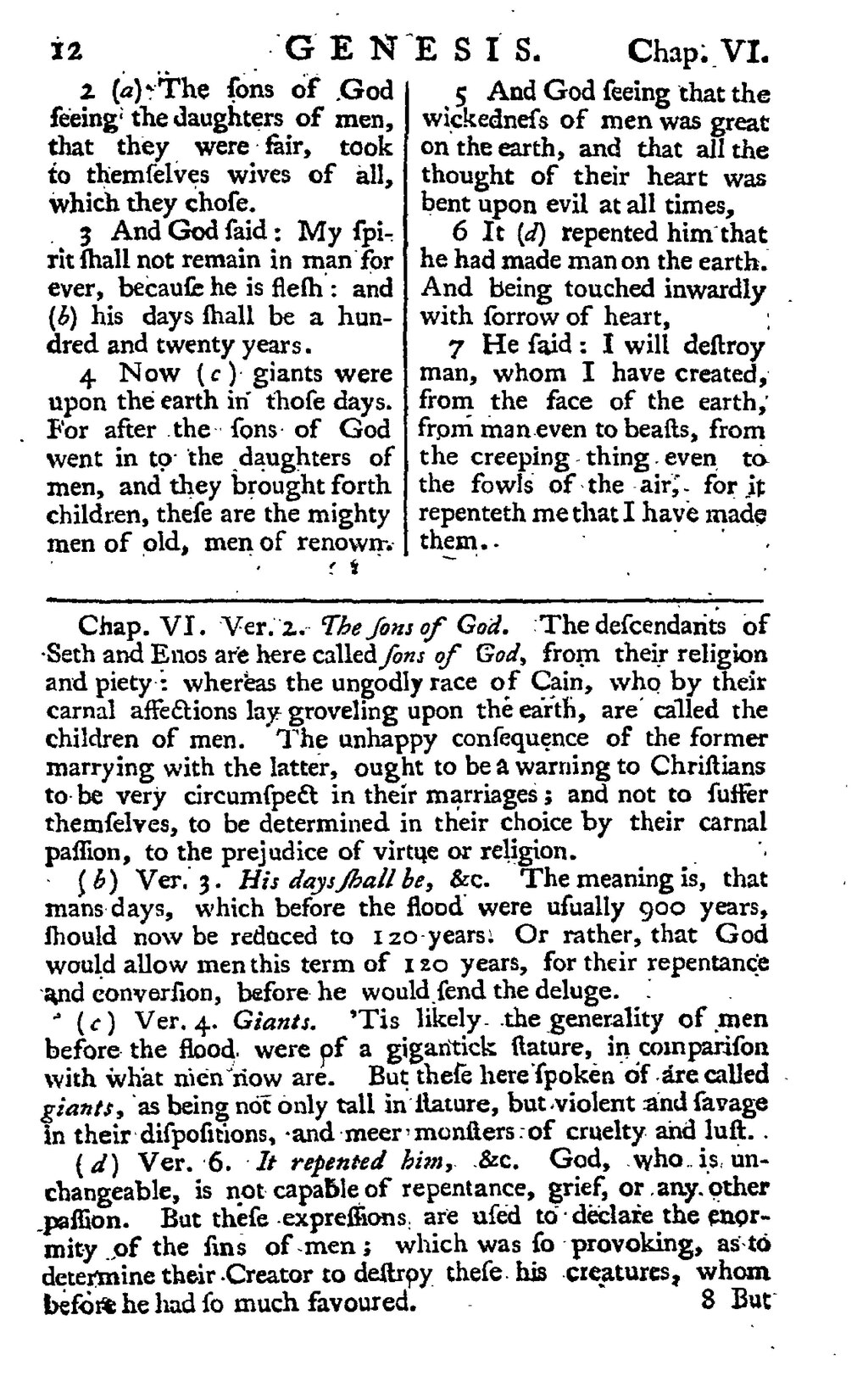2 [1] The sons of God seeing the daughters of men, that they were fair, took to themselves wives of all, which they chose.
3 And God said: My spirit shall not remain in man for ever, because he is flesh: and [2] his days shall be a hundred and twenty years.
4 Now [3] giants were upon the earth in those days. For after the sons of God went in to the daughters of men, and they brought forth children, these are the mighty men of old, men of renown.
5 And God seeing that the wickedness of men was great on the earth, and that all the thought of their heart was bent upon evil at all times,
6 It [4] repented him that he had made man on the earth. And being touched inwardly with sorrow of heart,
7 He said: I will destroy man, whom I have created, from the face of the earth, from man even to beasts, from the creeping thing even to the fowls of the air, for it repenteth me that I have made them.
- ↑ Ver. 2. The sons of God. The descendants of Seth and Enos are here called sons of God, from their religion and piety: whereas the ungodly race of Cain, who by their carnal affections lay groveling upon the earth, are called the children of men. The unhappy consequence of the former marrying with the latter, ought to be a warning to Christians to be very circumspect in their marriages; and not to suffer themselves, to be determined in their choice by their carnal passion, to the prejudice of virtue or religion.
- ↑ Ver. 3. His days shall be, &c. The meaning is, that mans days, which before the flood were usually 900 years, should now be reduced to 120 years. Or rather, that God would allow men this term of 120 years, for their repentance and conversion, before he would send the deluge.
- ↑ Ver. 4. Giants. ’Tis likely the generality of men before the flood were of a gigantick stature, in comparison with what men now are. But these here spoken of are called giants, as being not only tall in stature, but violent and savage in their dispositions, and meer monsters of cruelty and lust.
- ↑ Ver. 6. It repented him, &c. God, who is unchangeable, is not capable of repentance, grief, or any other passion. But these expressions are used to declare the enormity of the sins of men; which was so provoking, as to determine their Creator to destroy these his creatures, whom before he had so much favoured.
